Year: 31 October 1983 (LP Oct 31, 1983)
Label: Parlophone (UK), 1652301
Style: Rock, Soft Rock, Pop RockCountry: Liverpool, England (18 June 1942)
Time: 38:48
Format: Flac Tracks 16/96 kHz
Size: 441 Mb
Rip by Pikolo.
Когда альбом был издан, многие критики отметили, что Pipes of Peace подобен своему предшественнику, альбому Tug of War, во многих отношениях. Album также был спродюсирован Джорджем Мартином; в альбоме присутствовали две песни, созданные в сотрудничестве с одним и тем же артистом (в Tug of War - со Стиви Уандером; в этот раз соавтором стал Майкл Джексон); продолжилось сотрудничество при записи с Ринго Старром, с экс-гитаристом группы "10cc" Эриком Стюартом; в записи части материала (но уже в последний раз) участвовал Денни Лэйн. Причиной всего этого было то, что многие из песен, вошедших в альбом, были записаны в 1981 во время сессий звукозаписи материала для альбома Tug of War; остальные ("Pipes of Peace", "The Other Me", "So Bad", "Tug of Peace" и "Through Our Love") были записаны позже, в сентябре и октябре 1982. В ноябре 1982 Маккартни начал снимать фильм по своему сценарию, "Передай привет Брод-стрит" (англ. Give My Regards to Broad Street), где он также снимался в главной роли вместе с Линдой, Ринго Старром и Трейси Ульман; съёмки фильма заняли почти всё его время на протяжении 1983 года. Из-за занятости со съёмками (а также по соображениям выдержать паузу после выпуска предыдущего альбома), выпуск Pipes of Peace был отложен до октября 1983.
Затем Маккартни направил всю свою энергию на окончание работы как над фильмом, так и над альбомом с саундтреком к нему, которые вышли в свет осенью 1984.
Реакция музыкальных критиков на альбом была более прохладной, чем на Tug of War; многие из них посчитали, что Pipes of Peace - слабое повторение "формул успеха" предыдущего альбома Маккартни.
Дуэт Маккартни и Джексона "Say Say Say" поднялся до 2-го места в чарте Великобритании; в США эта песня поднялась до 1-го места, где находилась 6 недель в конце 1983 и начале 1984 годов. Маккартни и Джексон были очень дружны между собой в период с 1981 по 1985; охлаждение их отношений наступило, когда Джексон купил компанию ATV Music, владевшую правами на все песни The Beatles.
Вслед за "Say Say Say" и заглавный трек альбома "Pipes of Peace", поднялся до 1-го места в Великобритании в начале 1984, в то время когда в США другой трек с альбома, "So Bad", стал хитом в Top 30.
(ru.wikipedia.org/wiki/Pipes_of_Peace)
Rip by Pikolo.
After Tug of War. logically enough, come the Pipes of Peace. Carried, as it is, over two consecutive Paul McCartney records, the war-and-peace metaphor is not hard to miss. The message, too, is as simple and inarguable as the line of Indian wisdom inscribed inside the foldout jacket of the new LP: “In love all of life’s contradictions disappear.” Pipes of Peace is awash in love. Love of all the little children. Love between a man and a woman. Love of music. Love for all humankind. McCartney’s love boat all but capsizes in the waves of almost opiated good feeling that swell over it from all sides.
In truth, “Pipes of Peace,” the title tune and first track up, commences quite promisingly. A fanfare of orchestral dissonance gives way to a closely miked McCartney singing a luscious four-line melody over spare, ascending piano chords. It is a rare and breathtaking moment, an instance of McCartney at his soulful, hopeful best. But then it abruptly turns into a frivolous, jerky oompah tune with unison voices echoing each clumsily phrased line of baby talk that follows. Sadly, an enticing snatch of songcraft becomes, in the end, just another silly love song.
There is no dearth of silly love songs on this record. A top contender for silliest honors would have to be “The Other Me,” a goofy, quasi-C&W tune sung in an annoyingly Donald Fagen-like slur: “I know I was a crazy fool/For treating you the way I did. But something took hold of me And I acted like a dustbin lid.” But my vote would have to go to “Sweetest Little Show,” a plea for critical magnanimity amid unforgivable doses of saccharine. One needn’t read too deeply to apprehend that McCartney is, in all likelihood, singing to himself here: “You’ve been around a long time But you’re still good for a while And if they try to criticize you Make them smile, make them smile.”
This put-on-a-happy-face minstrelsy carries over into Paul’s several funk excursions. He’s teamed up with Michael Jackson to assay the amiable though vapid dance groove of “Say Say Say” (instantly hit-bound froth-funk that tends, after all, toward banality). Their other collaboration. “The Man,” is more off the wall, pairing, as it does, a heavily fuzz-toned lead guitar (shades of Ernie Isley) with a full-tilt stab at pure Broadway schmaltz: soaring choruses, orchestral swoops and swoons, and vaguely meaningful though ultimately indecipherable lyrics (e.g., “And it’s just the way he thought it would be Cause the day has come for him to be free”).
McCartney’s collaboration with jazz-fusion bassist Stanley Clarke (“Hey Hey”) is, on the other hand, a throwaway instrumental that leaves virtually no impression at all. Oddly enough, the same is true of both “So Bad” and “Through Our Love,” which close sides one and two, respectively. Both are big ballads in the grand McCartney tradition; the latter, in particular, would seem to want to tie together the various themes of the record into a stirring finale but is, again, lyrically ineffectual, mounting a host of cliches and vagaries into a heap of well-meaning nonsense.
Now, Paul McCartney is, after all, Paul McCartney, so these are not the gaffes of some mere novice or of an easy-listening hack like Christopher Cross. It seems that in some fractured sense, he fully intends to be unexceptional. Think back to the modestly scaled, hearth-and-home vignettes of the first several solo albums, or of his heroic, determined submergence in the group identity of Wings. Underneath all the elaborate arrangements and high-sheen production on Pipes of Peace (provided by George Martin, who also worked on Tug of War) is a humble man who retains affection - fascination, even - with the lot of the common folk. This is manifested most blatantly in “Average Person”: “Look at the average person/Speak to the man in the street/Can you imagine the first one you’d meet?” He thereupon “imagines” the lives of three such people - a truck driver, a waitress and an ex-boxer. The obvious relish with which he ponders these lives is fairly heartwarming. He is, in the end, hard to dislike. He does “make them smile.” But most of the time, he tries so hard to be an average man that he winds up making below-average music. Confusing slightness and simplicity, Pipes of Peace is, by and large, mediocre McCartney.
(rollingstone.com/music/music-album-reviews/pipes-of-peace-99878/) Review by Parke Puterbaugh. January 19, 1984
01. A1 Pipes Of Peace (03:51)
02. A2 Say Say Say (03:54)
03. A3 The Other Me (03:56)
04. A4 Keep Under Cover (03:07)
05. A5 So Bad (03:18)
06. B1 The Man (03:56)
07. B2 Sweetest Little Show (02:53)
08. B3 Average Person (04:32)
09. B4 Hey Hey (02:56)
10. B5 Tug Of Peace (02:53)
11. B6 Through Our Love (03:27)
При желании можно посмотреть все мои публикации на сайте. Приятного прослушивания.
Жмём и смотрим (Click to see all of my posts)!https://tbit.to/p7n06339fvmf.html - TurboBit
https://katfile.com/n6vs5if1o565/McCartney83PipesOfPeace.rar.html - KatFile
https://frdl.to/0djcnfbjdup6/McCartney83PipesOfPeace.rar.html - FreeDlink
![Paul McCartney (Beatles) - Pipes Of Peace [Vinyl Rip] (1983) Paul McCartney (Beatles) - Pipes Of Peace [Vinyl Rip] (1983)](https://i.ibb.co/1zNV3KG/Mc-Cartney83-Pipes-Of-Peace-500.jpg)





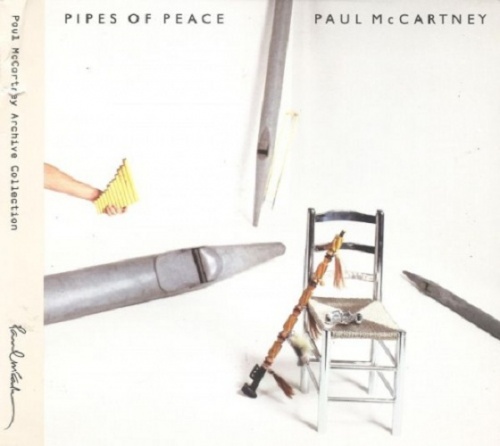
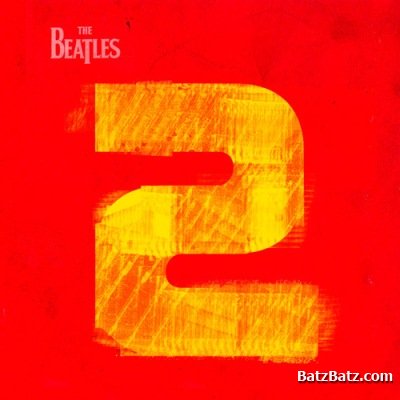
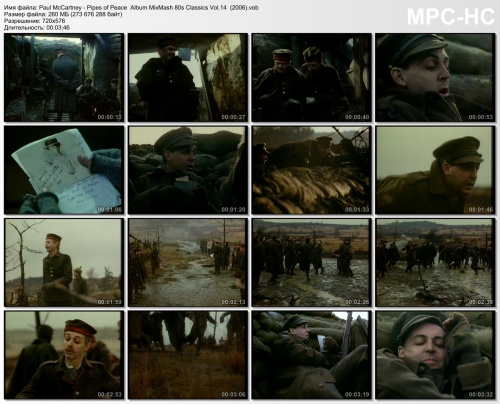
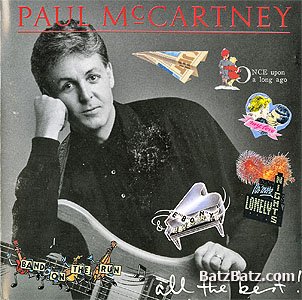
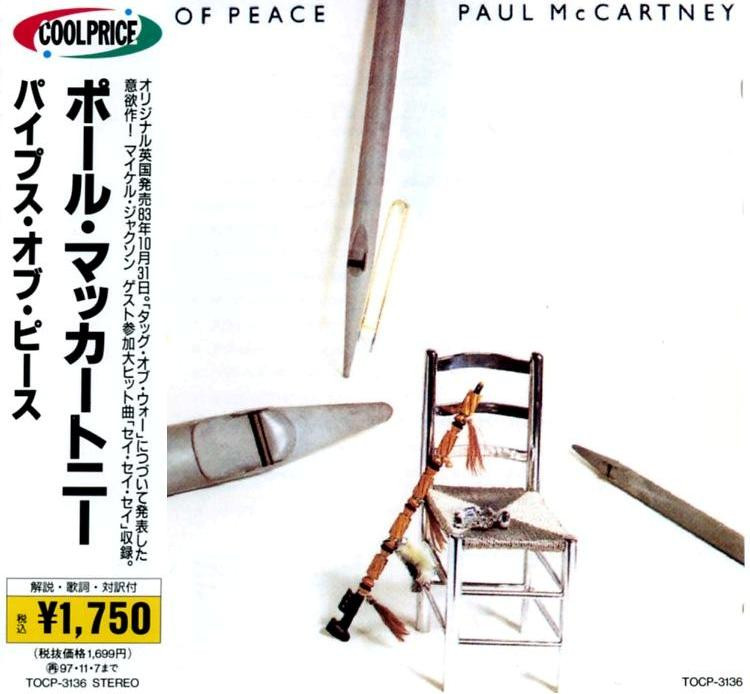
Comments